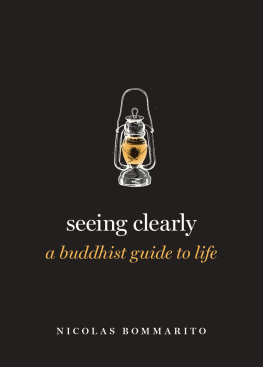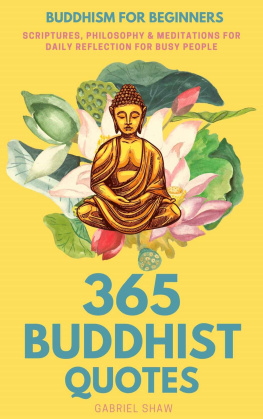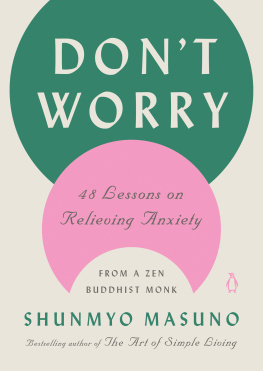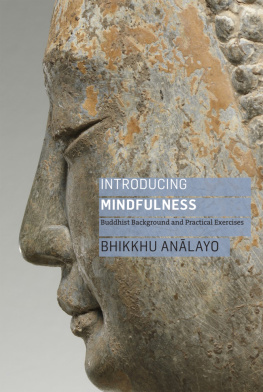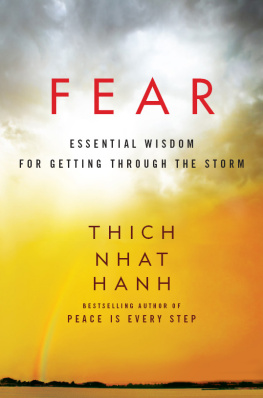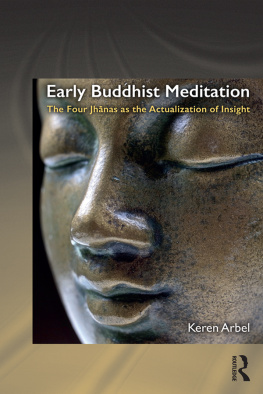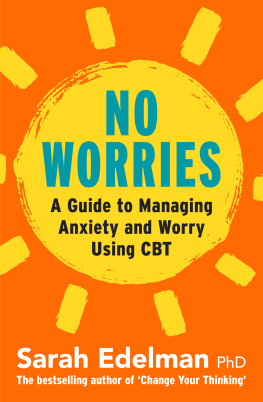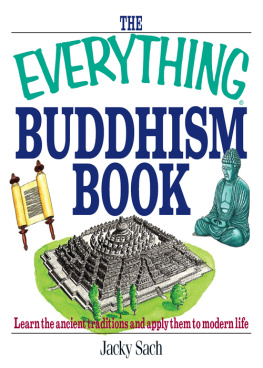SEEING CLEARLY
GUIDES TO THE GOOD LIFE
Stephen Grimm, series editor
Seeing Clearly: A Buddhist Guide to Life
Nicolas Bommarito

Oxford University Press is a department of the University of Oxford. It furthers the Universitys objective of excellence in research, scholarship, and education by publishing worldwide. Oxford is a registered trade mark of Oxford University Press in the UK and certain other countries.
Published in the United States of America by Oxford University Press
198 Madison Avenue, New York, NY 10016, United States of America.
Oxford University Press 2020
All rights reserved. No part of this publication may be reproduced, stored in a retrieval system, or transmitted, in any form or by any means, without the prior permission in writing of Oxford University Press, or as expressly permitted by law, by license, or under terms agreed with the appropriate reproduction rights organization. Inquiries concerning reproduction outside the scope of the above should be sent to the Rights Department, Oxford University Press, at the address above.
You must not circulate this work in any other form and you must impose this same condition on any acquirer.
Library of Congress Cataloging-in-Publication Data
Names: Bommarito, Nicolas, author.
Title: Seeing clearly : a Buddhist guide to life / Nicolas Bommarito.
Description: New York : Oxford University Press, 2020. |
Includes bibliographical references.
Identifiers: LCCN 2019044760 (print) | LCCN 2019044761 (ebook) |
ISBN 9780190887506 (hardback) | ISBN 9780190887520 (epub) |
ISBN 9780190092559
Subjects: LCSH: Buddhist philosophy.
Classification: LCC B162 .B66 2020 (print) | LCC B162 (ebook) |
DDC 294.3/444dc23
LC record available at https://lccn.loc.gov/2019044760
LC ebook record available at https://lccn.loc.gov/2019044761
For my parents
Contents
Several ancient philosophers held that the point of studying ethics was not just to learn about ethicsas one might learn about chemistry, astronomy, or historybut to become a better human being. They also recognized that this was not easy to do. In order for thinking about ethics to make a difference in our lives, they argued that our habits and inclinations needed to be educated right alongside our minds. They therefore claimed that what mattered to living well was not just what we thought but how we thought, and not just how we thought but how we emotionally responded to the world and to other people.
The books in this series highlight some of the transformative ideas that philosophers have had about these topicsabout the good life, and the practices and ways of life that help us to pursue it. They tell us what various philosophers and traditions have taken to be most important in life, and what they have taken to be less important. They offer philosophical guidance about how to approach broad questions, such as how to structure our days, how to train our attention, and how to die with dignity. They also offer guidance about how to deal with the sort of everyday questions that are often neglected by scholars, but that make of the texture of our lives, such as how to deal with relationships gone wrong, family disruptions, unexpected success, persistent anxiety, and an environment at risk.
Because the books are written by philosophers, they draw attention to the reasons and arguments that underlie these various claimsthe particular visions of the world and of human nature that are at the root of these stances. The claims made in these books can therefore be contested, argued with, and found to be more or less plausible. While some answers will clearly compete with one another, other views will likely appear complementary. Thus a Confucian might well find that a particular practice or insight of say, Nietzsche's, helps to shed light on his or her way of living in the world, and vice versa. On the whole, the idea is that these great philosophers and traditions all have something to teach us about how to be more fully human, and more fully happy.
Above all, the series is dedicated to the idea that philosophy can be more than just an academic disciplinethat it can be, as was for hundreds of years in the ancient world, a way of life. The hope is also that philosophy can enhance the ways of life we already feel pulled towards, and help us to engage with them more authentically and fully.
Stephen R. Grimm
Professor of Philosophy
Fordham University
September 2019
Buddhism is about you, your life, and how to get through it. Its about the problems you face and where they come from. Its about taking a long, hard look at the world and finding that its very different from how it first seemed. The fundamental source of these problems, Buddhists say, is that the world is very different from how our ordinary experiences make it seem. You fix it by changing your outlook so it better matches the way things really are.
Thats all pretty lofty. This book will discuss some pretty lofty ideas, but it will do so because theyre important for understanding the practical guidance Buddhism offers about how to live a better life. In presenting these ideas, my aim isnt to sell you on a particular form of Buddhism or to convert you into a Buddhist. The important thing is for you to think over these ideas for yourself. If it makes sense, then accept it. If it doesnt, at least youll have thought about new ideas about how to live and understand why you dont think theyre right.
Im also not here to hold up a particular flavor of Buddhism as real or authentic. Cards on the table, Im deeply skeptical of such judgments. Im not promoting a particular teacher, sect, or community. Buddhism means very different things to different people around the world. Its more accurate to think of various Buddhisms, different people in different times and places, who, despite a shared outlook, would still have plenty to disagree about.
Some of these agendas run deep and are impossible to avoidfor example, Buddhist texts often contain fantastical and supernatural aspects. Some Buddhists take these at face value. Others reinterpret or de-emphasize them. Personally, Im not a fan of the supernatural and favor other ways of understanding such strands. At the same time, my aim here is to present a window into Buddhism as a whole, not merely a secularized, modernized, and sanitized version of it.
I want you to better understand Buddhism, to understand what sorts of things Buddhists do, what they think, and most importantly, why. Understanding here doesnt just mean knowing facts. Its okay to be curious about Buddhism because its strange and different from what youre used to. But understanding it means that, eventually, it wont seem as strange anymore. So when you have contact with Buddhist ideas or practices, even if you dont accept them yourself, you can think, Yeah, thats something a normal person would do. I get why theyre doing that.
You can think of this book as a zoomed-out map of the Buddhist world and what it has to offer. Its a big world, so itll cover a lot of territory. This means the landmarks in some neighborhoods wont appear and there wont be as much detail as on more localized maps. But, especially if youve never been there or if youve only visited a small part of it, it will get you familiar with the lay of the land and help you to find neighborhoods that youll feel more at home in, or at least that youd like to visit.

